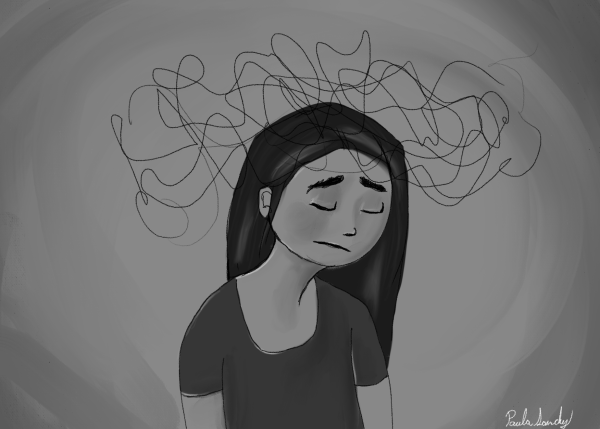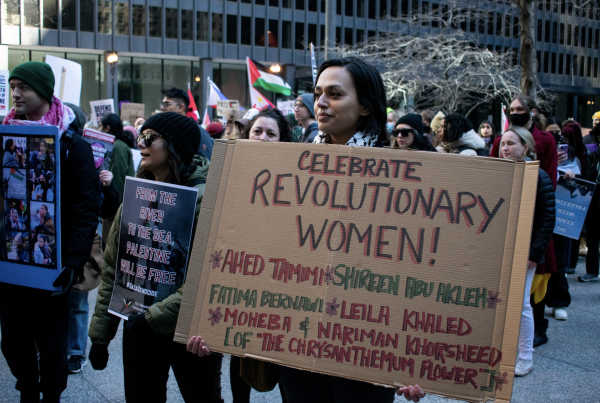Sex workers seek equal rights
April 6, 2009
In 33 years of working the streets, one former prostitute was arrested 186 times, suffered multiple stab wounds, was periodically homeless, encountered corrupt police officers, developed a drug habit and was raped numerous times.
Leeanna Majors, 54, said this was all part of the job. In fact, these are the experiences many sex workers live with each day on the streets—but all of this may be changing. Advocacy groups like the Chicago Foundation for Women and the Chicago Alliance Against Sexual Exploitation are working with lawmakers and law enforcement to implement new prostitution policies that would give sex workers rights and raise cultural awareness about the sex industry and other forms of human trafficking.
The dynamics of prostitution are being altered through use of the Internet and a policy change that could make sex legal to sell but illegal to buy.
A new policy was passed Dec. 17 that encourages law enforcement to no longer target sex workers and arrest their clients and pimps instead.
“Everybody agrees that arresting the women won’t work, ” said Lynne Johnson, director of advocacy for the Chicago Foundation for Women. “The only thing it does give them is records, and it decreases their chance of ever leaving the industry Johnson said decriminalizing the selling of sex and increasing the penalties of buying it are the best chances of eliminating the city’s high prostitution rates.”
Chicago has become a model for the rest of the country because of its progressive stance on the issue of prostitution. The Cook County Sheriff’s office is making a conscious effort to implement the new policy using undercover work to catch clients and figure out whom the women work for, Johnson said.
It may take several years for the new policy to make a difference; however, Johnson said a big obstacle is changing the “cultural attitude and beliefs” about prostitution. Some people think because women are working the streets willingly, anything that happens to them on the job is their own fault.
The cultural shift may take time, especially after looking at message boards on the Chicago Tribune website discussing Cook County Sheriff Tom Dart’s decision to sue Craigslist.org for being “the largest source of prostitution in America,” according to a Cook County press release.
Many of the comments posted opposed Dart’s action to sue Craigslist.org. Some said it was a “waste of taxpayer money” or there was no way to stop “the world’s oldest profession.” Others said law enforcement should spend their time and money going after real criminals.
Dart said that it was vital for Craigslist.org to get rid of their “exotic services” section because it promotes the selling of underage girls. An FBI sex ring investigation last year found more than 2,800 child prostitution ads posted on Craigslist, according to the press release.
“Missing children, runaways, abused women and women trafficked in from foreign countries are routinely forced to have sex with strangers because they’re being pimped on Craigslist,” Dart said in the press release.
Dart’s actions have stirred controversy not only among taxpayers, but also Chicago advocacy groups that support current and former sex workers. Samir Goswami, policy director for CAASE, said Dart was just doing his job by suing Craigslist.
“The sheriff’s office is focusing primarily on Craigslist and not too much on street-level work because that’s where the market is going, ” Goswami said. Escorts aren’t in the phonebook anymore; it’s on the Internet.
Goswami said it’s ridiculous for people to say prostitution isn’t as important as other crimes because a lot of the sting operations have been targeting underage exploitation.
“It’s a sad day when we start comparing misery and start prioritizing it,” Goswami said.“Some of the sting operations have gone after those who traffic children, so I would really like to meet someone who tells me the trafficking of a child is not as important and that we shouldn’t be dedicating all of our resources toward [stopping it].”
He said prostitution was an important issue right now due to the current economic condition, because “the recession could decrease people’s options and increase their desperation.”
Majors said she decided to start working the streets because she needed the money and because she was “having sex anyway,” so she didn’t mind being paid for it.
Women in need of money to support themselves, and possibly their families, go into prostitution as an answer to their financial woes, not normally because they enjoy selling themselves. Goswami said the focus should be on the clients buying sex because they control the demand of the industry.
“Last year we did 113 interviews with men who buy sex, and the vast majority started at a very young age, like high school,” Goswami said. “It usually stems from peer pressure”
Goswami said the men they work with and educate normally say buying sex has warped their sense of women and ruined relationships. The alliance’s goal is to shut down high prostitution rates through the primary source—men. If men stop buying sex, women will have to get out of the industry.
Other advocacy groups, like the Sex Workers Outreach Program, believe prostitution is a never-ending cycle, so the community and law officials should embrace it by giving sex workers rights instead of arresting them and treating them poorly, said Serpent Libertine, a volunteer for SWOP and also a blogger for SexPros.net.
The group was among the foundations that disagreed with Dart’s decision to sue Craigslist.org. Libertine described it as “a waste of taxpayer money and a publicity stunt to further [Dart’s] political career.”
The project advocates for former and current sex workers through podcasts and a television show called “Red Light District Chicago” that airs on CAN TV, channel 19.
Libertine said SWOP wants sex workers to be recognized as law-abiding citizens by decriminalizing prostitution in society. The group also promotes providing women with health insurance and other benefits, and they want women to be safe and feel free to go to the police if they are in trouble.
Libertine said law enforcement has not been a helpful entity when it comes to protecting the women—in fact, they have been known to exploit them even more. If a person in the industry is attacked on the job and is a victim of violence, she can’t go to the police because they will say they have to arrest her and the perpetrator, Libertine said. So, the women are stranded and unsafe.
“The law enforcement is a huge issue; they ask for free services, they laugh at the workers and mistreat them, ,” Libertine said. “They get to degrade them and then arrest them.”
Majors said when she was working the streets, she had problems with police officers and other officials taking advantage of their rank and her circumstance.
“They picked me up a whole lot, and they would say, ‘You’ve gotta do something for me, or I’ll take you to jail,’” Majors said. “One night I must have slept with so many police officers that I didn’t have a paying customer all night; I started to realize that the police were telling the other officers so they would come down and pick me up, too.”
Majors described her 33 years in the business as being very diverse. She had seen a little bit of everything, including pastors, preachers and one chief Circuit Court judge.
“One day I picked up this guy and we were in the hotel and I was giving him oral sex,” Majors said. “He started shaking, and I looked up and he was foaming out the mouth … I go and get him water, and then I opened up his wallet to find someone to call. And it said ‘chief Circuit Court judge.’”
She was scared but stayed with him and helped him until he came around Majors. Eventually, he thanked her for staying with him and said it happened because he had snorted cocaine for three days straight.
No matter what side anyone is on to solve the prostitution crisis, many advocacy programs agree that women deserved fair and equal treatment from law enforcement and society.
Society doesn’t understand sex workers’ motivation to join the industry and the violence that comes along with it, Majors said.
“I’ve had a lot of girlfriends that have contracted HIV, [and] I’ve watched a lot of them die because of it,” Majors said. “I caught gonorrhea once, and I was taught about safe sex. But when you are raped, they don’t wear a condom. That’s the part that people don’t understand. It’s always that one guy that will force himself on you—you could catch something. You can’t always count on the safety.”
Women need a safety net, Majors said. Sex workers should be able to go to the police for help, not be victimized by them.
Majors is an example of a former sex worker who beat the odds and now has her own apartment, has been clean for more than a year, has maintained a full-time job and is a motivational speaker for the Chicago Coalition for the Homeless.
Majors carries her message of accomplishment to high schools and other young adults. She tells them: “There are situations that make us believe that selling ourselves is the answer, but you cannot put a price on yourself or be paid for your true value. Take a good look inside yourself and wonder why you aren’t loving yourself, because if you are selling yourself, you must have low self-esteem.”
“I sold myself because I didn’t love myself or my body,” Majors said.


